The Rise of Voice Search 2.0: Optimising for Conversational Queries
6th February 2025 / in SEO / by Ruturaj Kohok

The rise in voice search technology has changed the way we use technology. It has become hands-free and convenient.
In 2025, about 20.5% of people are using voice searches. Almost everyone owns a smart device that allows for voice-based searches, reforming how people use search engines.
In such a technologically advancing scenario, it has become the need of the hour for businesses to optimise their content for voice searches. This can help them stay ahead of the competition.
In this blog, we will talk about the rise in voice searches and how to strategize effectively to optimise for them.
Let’s get started!
Why are voice searches so popular in 2025?
If you are wondering why voice searches are gaining so much popularity, the reason is simple!
- In 2025, due to the increase in the use of smart devices, over 50% of searches are voice searches using voice assistant technology like Google Assistant, Siri, and Alexa.
- These smart devices, whether they are smartphones, smart speakers, or smart TVs, allow for voice-enabled searches without typing out your query manually. Voice searches are also much faster than conventional searches.
- This convenience and speed make it much more appealing to users, as they can find answers to their queries within seconds.
- The rise in the use of AI in voice searches also makes it easier and better than ever to opt for voice searches over typing your queries, making the impact of voice searches on digital marketing huge.
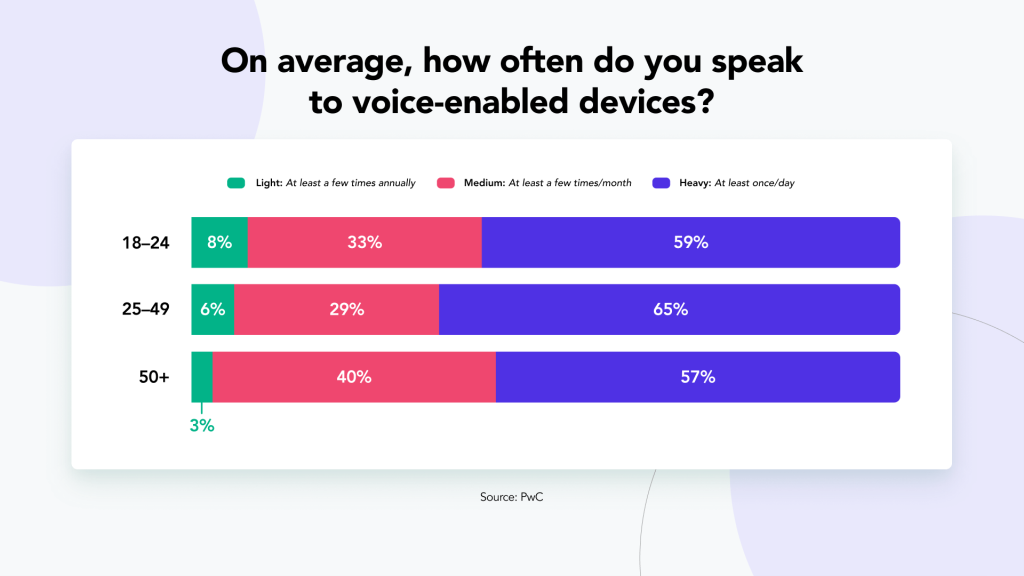
Source: PwC
As you can see, this shows a significant increase in voice-enabled searches. This makes it important to have strong voice search optimisation strategies so that the search engine’s algorithm picks up your content.
Wondering how to optimise a website for voice search in 2025?
We have the answer – read more to find out!
Choose the right keywords
Whether it is traditional SEO or voice search SEO, choosing the right keywords plays a critical role. It is important to target the right keywords so that your content is used in the answers of voice assistants.
When selecting keywords for voice search optimisation, conversational SEO techniques are key. Choose long-tail keywords that can be used to target specialised audiences.
Long-tail keywords are often longer than commonly used ones and contain specific phrases that have a lower search volume and higher conversion rates.
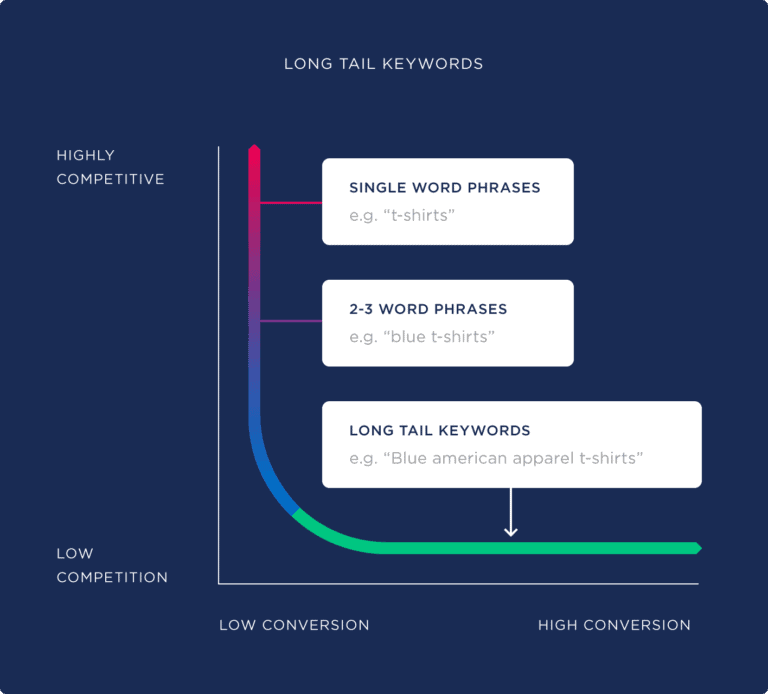
Source: Backlinko
Make sure that the tone of your content reflects the way people generally speak in their day-to-day lives. You can also use question-based keywords with words such as “how,” “what,” “when,” “where” and “who.”
Ensure to go for longer and descriptive keywords to include phrases that people use in everyday conversation, for example, “Where can I find the best pizza in Mumbai?” or “What is the best omelette recipe?”
Remember, choosing the right keywords is one of the best practices for ranking in voice search results.
The combined result of voice search and user intent based on the right keywords is the conversion from a visitor to a customer.
Pay attention to technical aspects of SEO
As we all know, technical SEO is optimising your website’s technical aspects to ensure it ranks higher on the SERPs.
It plays an important role in ensuring faster loading speed, a proper structure, and the search engine’s ability to index and crawl the website. These aspects are key in your website to optimise for voice searches.
Technical SEO focuses on improving your website’s user experience by optimising the page speed. Search engines prioritise websites that load fast and provide a good user experience.
People who use voice searches expect instant answers, making a fast-loading website a must-have to rank well in voice search results.
Another important aspect of technical SEO is the mobile-friendliness of your website. This is especially important because most of the voice searches are done through mobile phones.
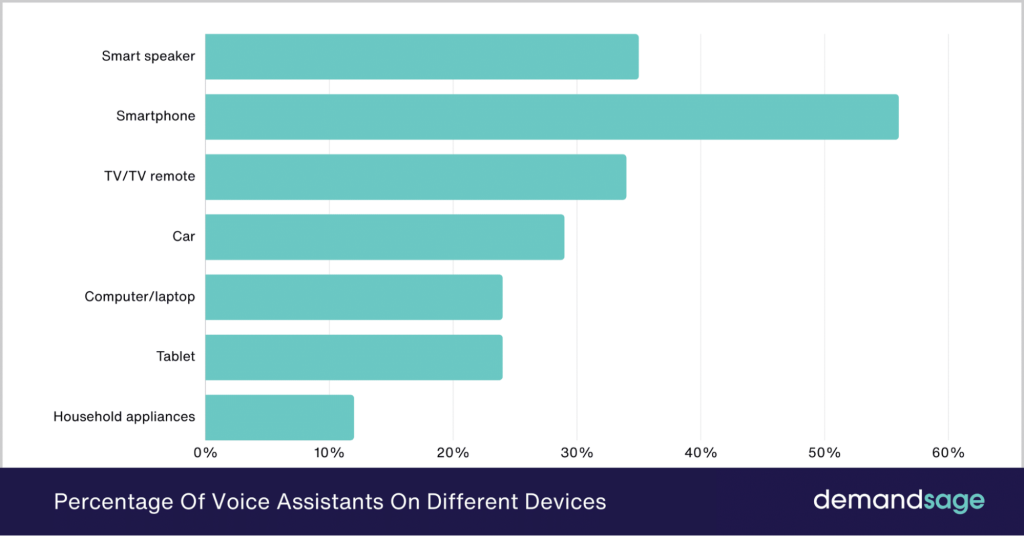
Source: Demand Sage
About 55% of people use voice assistants on their smartphones for voice searches.
This makes mobile optimisation for voice queries important. Optimising your content for smart assistants like Alexa and Siri can help you rank better in voice search results.
A responsive website design can also ensure it adapts to various devices’ screen sizes, improving the chances of your website ranking for voice searches done through any device.
Another technical element that needs to be optimised for voice searches is schema markup.
If you are wondering how schema markup helps in voice search optimisation, we have the answer for you.
Using schema markup for voice searches can also help the search engine understand the intent and context behind the content on your website.
This improved understanding can increase the chances of your content popping up in featured snippets. This can help search engines pick your content as answers to voice queries.
There’s one thing most people overlook: HTTPS is an important factor for voice search optimisation. It plays a key role in ensuring data safety on mobile phones during voice searches.
Search engines prioritise security and do not pick content for voice search results from insecure websites. This makes having an SSL certificate for your website very important, making it HTTPS.
HTTPS or secure websites have higher visibility on the search engines, ensuring more chances of their content in featured snippets and ultimately in voice search results.
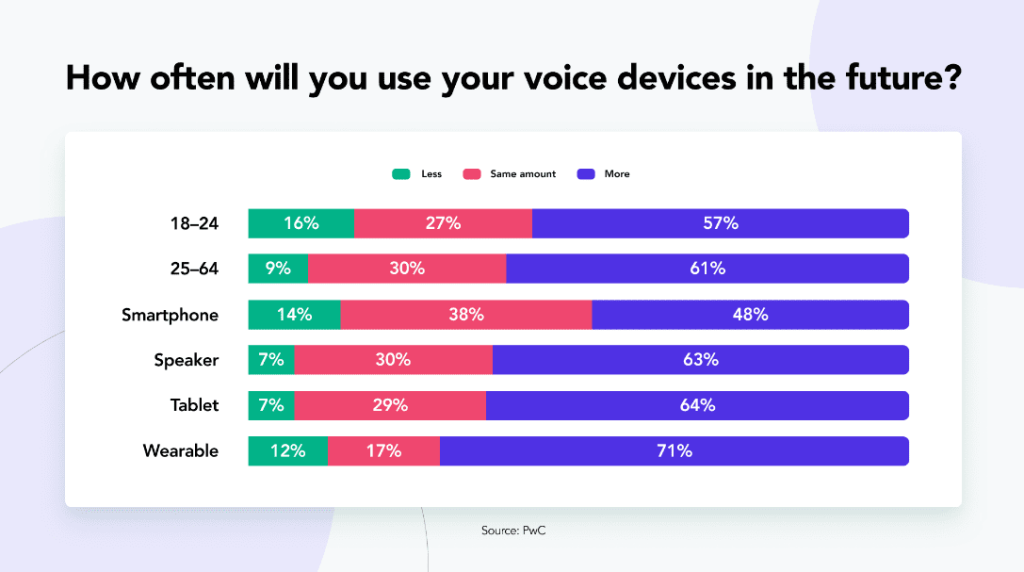
Source: PwC
The future of voice search in 2025 looks promising. As per predictions, 48% of people are expected to use voice-enabled searches on their smartphones, whereas 63% of people will use their speakers for voice searches.
This makes it important to optimise all technical and non-technical aspects of SEO to rank better and appear in voice search results.
Use AI
AI and voice search integration have transformed the digital marketing landscape. It plays a key role in voice search optimisation.
AI helps search engines interpret natural language, research relevant long-tail keywords, and have a conversational tone in your content.
The integration of AI in marketing has changed the way people interact with e-commerce businesses. You can check it out here.
Incorporating AI in your marketing efforts can improve the chances of your website appearing in featured snippets and ultimately in voice search results.
AI can help implement NLP (Natural Language Processing) that enables your devices to understand the context behind your words and the intent behind your queries. This ensures that your content appears for relevant voice queries.
You can also use AI to identify relevant long-tail, conversational keywords that can be optimised for voice searches.
Another important use of AI in voice searches is integrating chatbots into your website for efficient customer conversations. It is impressive how AI-powered chatbots influence voice search results.
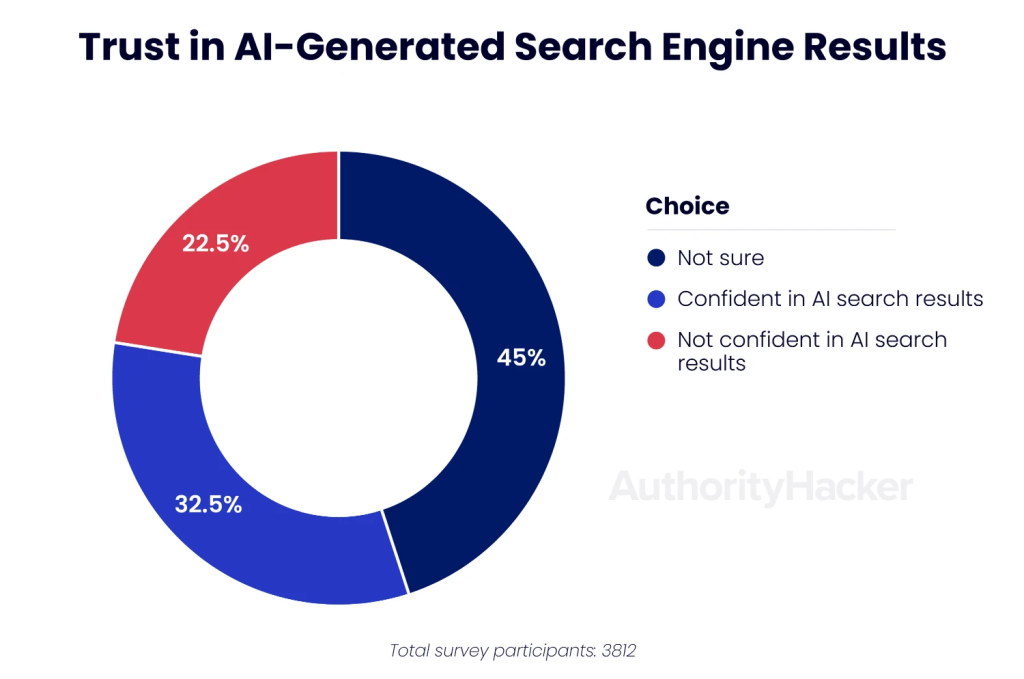
Source: Authority Hacker
About 32.5% of people are confident in AI-based search engine results,
making it ideal for content generation in an intent-based, targeted and conversational tone which is perfect for voice searches.
It can also analyse user behaviour and search trends to create content that can appear in featured snippets in voice searches. So, if you ever wonder how conversational AI is changing search engine queries, the answer is SIGNIFICANTLY!
Take a closer look into how Google’s Search Generative Experience (SGE) affects voice searches: it helps users interact with the search engine and ask follow-up questions to get direct answers on the search page itself.
In technical SEO, AI can also help implement structured data, enabling the search engine to understand the meaning and intent of your content and pick relevant data in voice search results.
Optimise local SEO for voice queries
Local SEO is a key part of SEO strategy. Despite the significant impact of voice search on traditional SEO strategies, local SEO optimisation is still relevant.

Source: SEOprofy
72% of people use voice searches to look for local businesses.
Voice search results rely on local directories such as Google Business to generate proper results for user queries.
This makes it crucial to update and optimise your Google My Business profile with relevant and necessary details.
Efficiently optimising your business profile can positively impact how your business appears on Google Maps, Google Search, and Google Shopping.
It is needless to say Google Assistant depends on Google Business Profile to generate answers for local voice searches.
Use local long-tail keywords or phrases in your profile that your target audience might use, such as “best dentist near me” or “2 BHK apartments for rent in Bangalore under 40k.”
You can use location-specific or product-specific keywords to improve the chances of your profile ranking in local voice searches.
Final thoughts
Optimising content for voice assistants such as Google Assistant, Siri, Alexa, and more in voice searches has made it possible for businesses to connect with their customers like never before.
It allows businesses to focus on conversational content using long-tail keywords, improving the chances of your content appearing in voice search results.
The best practices for voice search SEO include choosing the right keywords, optimising the technical elements of your website, using AI for various SEO tasks, and updating your local business profile.
This can improve your visibility in search engine results for voice searches, making it an important addition to your SEO strategy in 2025.
Need help with SEO services for voice search optimisation? Connect with our team now!































